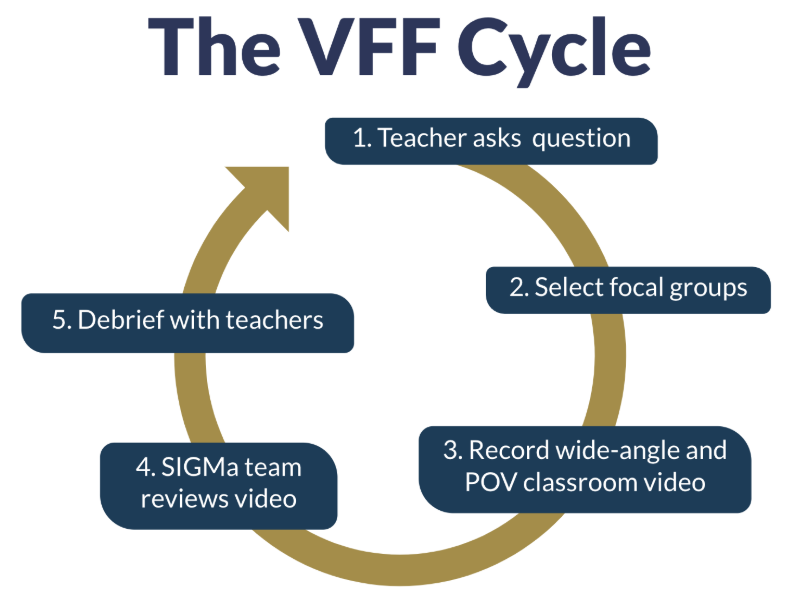Problems of Practice
Problems of practice are the classroom interactions that teachers or researchers identify as troublesome, challenging, confusing, recurrent, unexpectedly interesting, or otherwise worthy of comment.
The Goal
The goal of this analysis is to determine and understand the issues that experienced teachers struggle with, even with their many years in the field. Experienced teachers have moved beyond fundamental, concrete questions of teaching into more abstract ones. By determining the abstract questions accomplished teachers grapple with as they move towards ambitious math teaching, we will better understand how to support them.
Research Question
What are the problems of practice that experienced teachers seek to engage through VFF cycles?
How Are We Addressing Our Research Question?
Our data-collection process is embedded in the larger VFF cycles:

- Focal teachers discuss where they think they have room for improvement in their practice, as well as what challenges they face in the classroom.
- Facilitators observe the focal teacher in the classroom, while simultaneously collecting video data.
- Facilitators review the video and audio captured, searching for evidence related to both the problems of practice that the teacher identified, as well as evidence related to problems of practice that the teacher may have been unaware of.
- Within a few days, researches and teachers debrief the class, including in-depth discussion related to the problems of practice that surfaced during the observed class period.
- Video-recordings of these VFF debriefs are used to identify and analyze teachers’ problems of practice.
So What?
Through this line of analysis, we have compiled a list of “problems” that these accomplished urban mathematics teachers face. The problems of practice that our focal teachers grapple with often overlap.
Now that we are beginning to understand what these accomplished teachers struggle with and worry about, it is possible to explore solutions.
Our findings will help us think about how feedback that is close to teachers’ practice (and the use of VFF cycles) supports teacher learning. In the long run, this research will help us understand how to better support math teachers towards ambitious forms of teaching, which is more equitable and beneficial for students. Providing support for teachers provides support for students, and this research allows us to determine where and how to integrate this support.